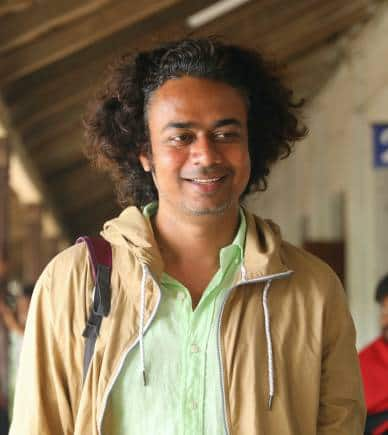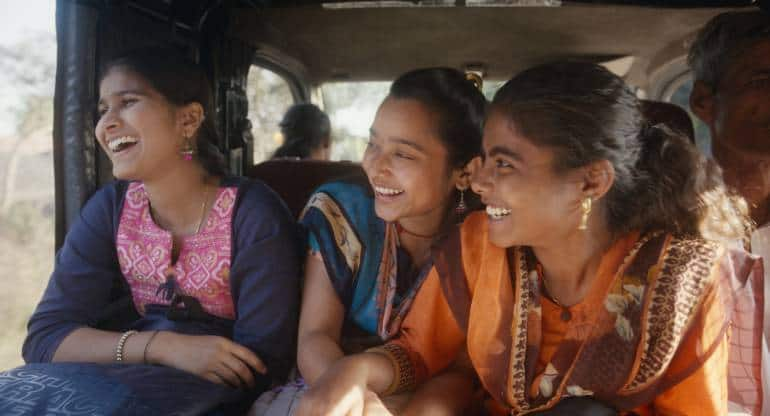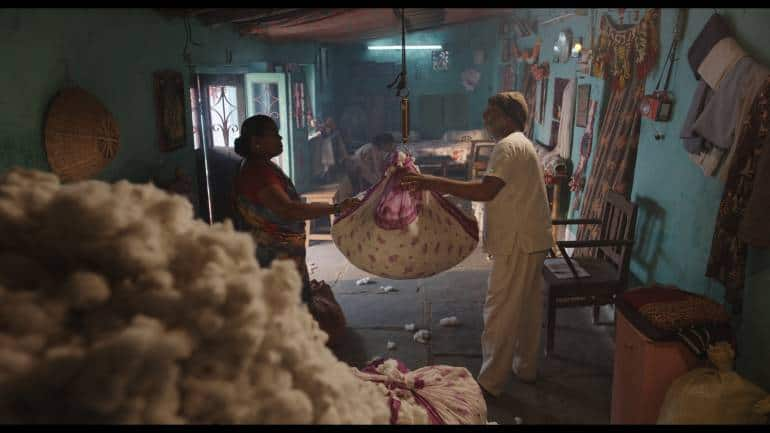



It started in my mid-20s. There wasn’t a barrage of ‘rishtas’ (arranged proposals) coming my way, but there were enough to break a sweat. Like that father running with a safa (groom’s headgear) after every eligible man for his daughter in the Jeevansathi.com TV advertisement, my mother would not blink twice before asking acquaintances, relatives, even absolute strangers, at weddings, temples and festivals, to find me a good match. Duty, she said. Begging, I interjected. Every time I was asked to send my ‘bio-data’ and a ‘fair and lovely’ photograph, or filter through the abominations masquerading as suitors on marriage websites, pop went my nerves. “Too picky”, I was called. Now in my late 30s, I still cause my mother sleepless nights. But, like author Henry James’ heroine Nanda Brookenham (The Awkward Age, 1899), who was rendered unmarriageable because she knew too much, I too declared, “I shall be at the end...one of those who haven’t (married).”
An old wound was scratched while watching the 20-something Savita, in Jayant Digambar Somalkar’s debut Marathi feature film, go through a far worse drill — the “interview” by a manel. Sthal (A Match), the only Indian film in the Discovery section of the 48th Toronto International Film Festival (TIFF) that won the NETPAC Award for the Best Asian Film, will screen at the 2023 Jio MAMI Mumbai Film Festival (October 27-November 5), in the new South Asia Competition segment, among 13 other solid films. Germinated from Somalkar’s personal experiences, the film is a solid indictment of the humiliation of bride selection.
Potential suitor with male members of his family and friends sit like a panopticon to fire questions at her; the boy, of course, goes unasked. Dead inside, she answers on rote. The men huddle in a corner to decide — to judge her skin colour, height and what have you. Once done, she touches their feet and they leave with the promise of an answer. The cycle repeats.
For generations, fathers have told their daughters what Utpal Dutt’s Bhavani Shankar tells Bindiya Goswami’s Urmila in Gol Maal (1979), “Tumhari shaadi usse nahin hogi jisse tum prem karti ho, tumhari shaadi usse hogi jisse main prem karta hoon (you’ll be married not to whom you love but to whom I love).” Hilarious as it sounds, the tragic surmounts the comic. And much like that, the Austrian archduchess Marie Antoinette was married by proxy to the dauphin of France, King Louis XVI, whom she’d never met.
Jane Austen was right. It is indeed a truth universally acknowledged that a single man — never mind whether in possession of a good fortune or not — must be in want of a wife. For aeons, arranged marriages have existed as a means of exchange, between noble families in feudal societies. The practice unites ancient Rome, Elizabethan England, Samurai Japan, China’s Shang Dynasty, and Vedic India, with the coming of the Aryans (later the Brahmins). The woman is but a commodity, as such practices as bride price and dowry prevail. From the father-to-husband (patria potestas to manus) handing over the girl’s ownership in ancient Rome to our kanyadaan (donating/gifting the daughter).
Shows like Bridgerton, Indian Matchmaking, Made in Heaven and Hindi films of Sooraj Barjatya to Karan Johar find their biggest market here because, if reports are to be believed, around 90 per cent of India still gets married by arrangement. Yet, they all present the lives of a certain class, the rich urban elite, the upper caste. Commercial visual entertainment seems to have drawn green curtains to set their eyes on manicured classes. Who will tell the story of rural folk? The documentary and indie filmmaker, of course.
Before Sthal, Sarita Khurana and Smriti Mundhra’s documentary A Suitable Girl (2017, premiered at Tribeca Film Festival) and Geetika Narang Abbasi and Anandana Kapur’s Much Ado About Knotting (2012) talked about the social pressure to make matches between strangers in India. Somalkar, before making Sthal, which showed to full houses in Toronto, made a short film, Iyatta (Class, 2016), and the Amazon Prime Video show Guilty Minds (2022) with Shefali Bhushan, his wife, co-writer, co-director, co-producer.
 Jayant Digambar Somalkar, director of Sthal (A Match).
Jayant Digambar Somalkar, director of Sthal (A Match).
Somalkar’s realist feature has a patina of despair with a spattering of the tragicomic and is bookended by surreal hope. The use of natural light, slow pans of the camera and meaningful silences add a richness of texture. BA final year student Savita’s jobless elder brother can’t marry until she’s married. Savita’s “fairer” friends find partners, arranged or not, while she’s stuck in a drill. Boy-girl romance is frowned upon. Savita’s college, that liberal space, is where aspirations can bloom, where men talk about women emancipation, where invisible orchestral violins serenade when Savita and her sociology teacher’s eyes meet. Outside of their homes, even her friend’s secret love-glances get a Salman Khan romantic background track. These music, not of the place, signal the dreamy young, though the film uses local music well.
 A still from Sthal '(A Match)'.
A still from Sthal '(A Match)'.
Strikingly in one scene, as background score for Savita’s first suitor and company who come on bikes, their faces wrapped in white cloth. Somalkar’s subject, which could have easily slipped into melodrama, is devoid of exaggerations. He deftly infuses the serious with the comical. The bike scene evokes an imagery of a group of bandits on a heist mission. Considering girls are called paraya dhan (someone else’s wealth/property), such juxtaposition is credible. An old woman runs at their sight. Have they have come to jab her? This moment and the hand sanitiser kept with the soap and water at Savita’s home for guests is quite telling of a post-COVID world. The sanitiser, however, stays untouched, much like the villagers’ mindset.
Sthal translates to place in Marathi. It speaks about the ‘place’ of women in patriarchal society. As well as the director’s native place — shot in his village, Dongargaon in Chandrapur district of Maharashtra, and in the very house he was born in. Sthal is empathetic, thoughtful, with compelling acting, with great restraint, by its lead and minor characters, who are all non-actors, comprising the villagers and Somalkar’s relatives. Nandini Chikte as Savita is quite a find. She has hints of Nimisha Sajayan (The Great Indian Kitchen, 2021) and Divya Prabha (Ariyippu, 2022), as she puts on a brave front in living through the indignity.
Taranath Khiratkar, who plays the father, is worth a mention, too. There were glimpses of Vikram Gokhale in him. Somalkar does not villainise anyone. Least of all the father. The daughter isn’t called or thought of as a bojh (burden), as a lot of Hindi films/serials tend to do. The woebegone small-time farmer can neither find a good match for his daughter nor fair price for cotton. The heaviness of getting a daughter married weighs down on his very sustenance.
 Savita's parents in a still from Sthal '(A Match)'.
Savita's parents in a still from Sthal '(A Match)'.
This isn’t the world of Nagraj Manjule’s Sairat (2016), Savita is no Archie, she doesn’t have class/caste privilege to act on a whim. Her greatest betrayal is when her only hope crashes. Nor is she Radhika Apte’s Savitri from Sumitra Bhave and Sunil Sukthankar’s Gho Mala Asla Hawa (This is the Husband I Want!, 2009), who can ask her father why men alone can have a say in choosing their partner.
Somalkar is a feminist storyteller. “To be a feminist,” to borrow Nivedita Menon’s words, “is to recognise that, apart from gender-based injustice, there are multiple structural inequalities that underlie the social order, and to believe that change is possible, and to work for it at whichever level possible.” Somalkar, in both his films, Iyatta and Sthal, gives agency to women even as he shows them as victims of their circumstances. If in the former, the house help’s quest is to learn to write, Savita wants to crack the Maharashtra Public Service Commission exam. Somalkar infuses messages into his stories — Savitribai Phule’s image, women’s education and empowerment. Also, in Sthal, that love needs a spine and not all seemingly progressive and feminist men practise what they preach.
“Feminism isn’t about that moment of final triumph,” Menon writes, like the climax of Great Indian Kitchen, “but about the gradual transformation of the social field so decisively that old markers shift forever”, as one sees in the beginning of Sthal, albeit a dream sequence, of gender role reversal, where women, including Savita, interview a boy for marriage instead. Art makes possible what reality doesn’t. It is for such possibilities that we go to cinema.
What veteran film critic Vidyarthy Chatterjee once wrote about Bhave’s oeuvre can be extended to this new crop of evolving younger Marathi filmmakers, too: “Perhaps, more than anywhere else in the country, it is in contemporary Marathi cinema that the original spirit of New Indian Cinema resides today. In this connection, the words of the journalist and author Asha Kasbekar-Richards hold great meaning: ‘It is regional cinema that is at the cutting edge of New Indian films. It is evident that nowhere is the renegotiation of the Indian identity in this new age of consumerism being better analysed than in the low-budget regional cinema.’ The best films of Sumitra Bhave and her long-time collaborator Sunil Sukthankar were important attempts in expressing popular disquiet in a strikingly restrained language.”
So long as arranged marriages exist, Sthal, which deserves to be seen on the big screen, will remain relevant.
Discover the latest Business News, Sensex, and Nifty updates. Obtain Personal Finance insights, tax queries, and expert opinions on Moneycontrol or download the Moneycontrol App to stay updated!
Find the best of Al News in one place, specially curated for you every weekend.
Stay on top of the latest tech trends and biggest startup news.